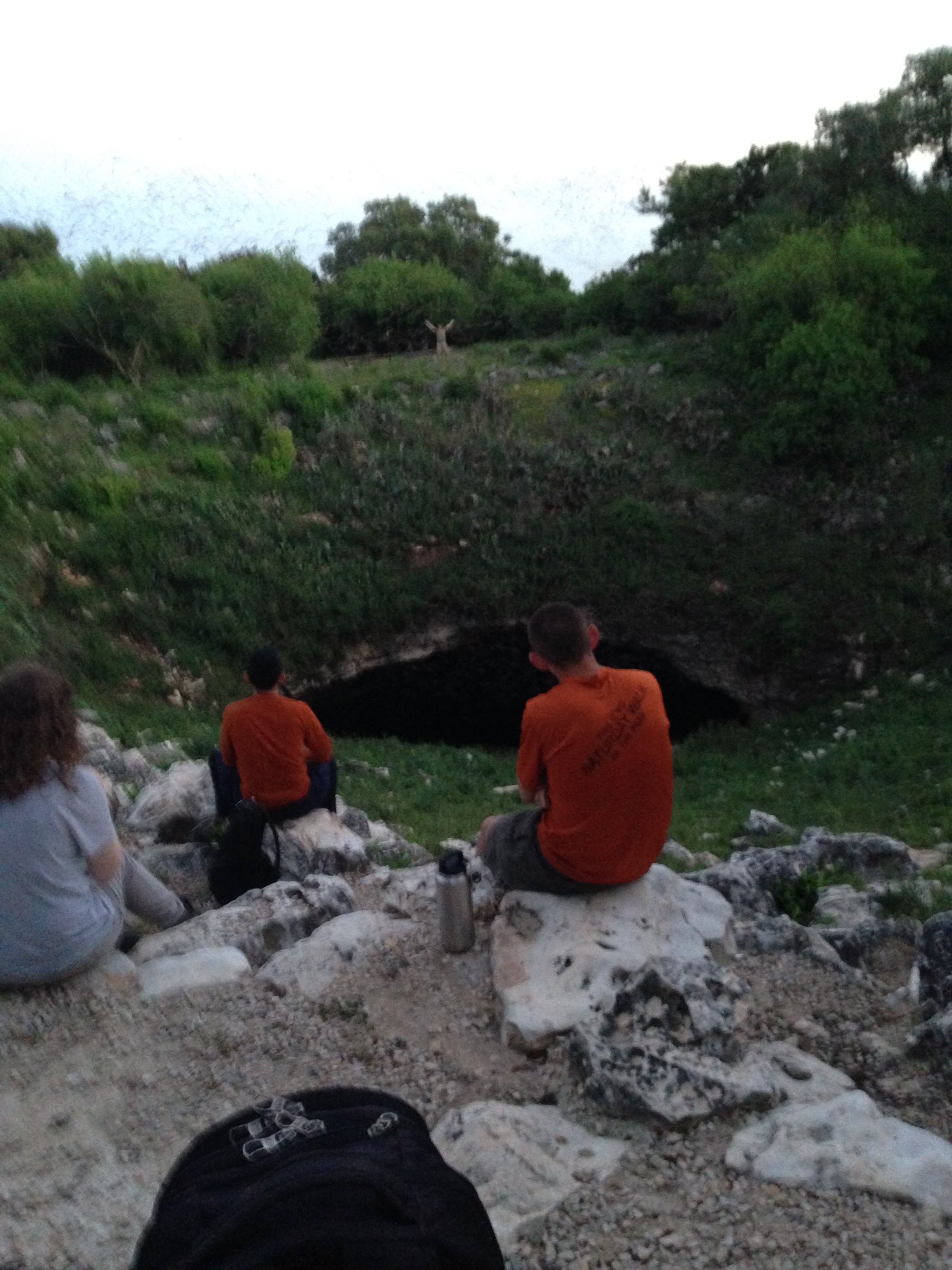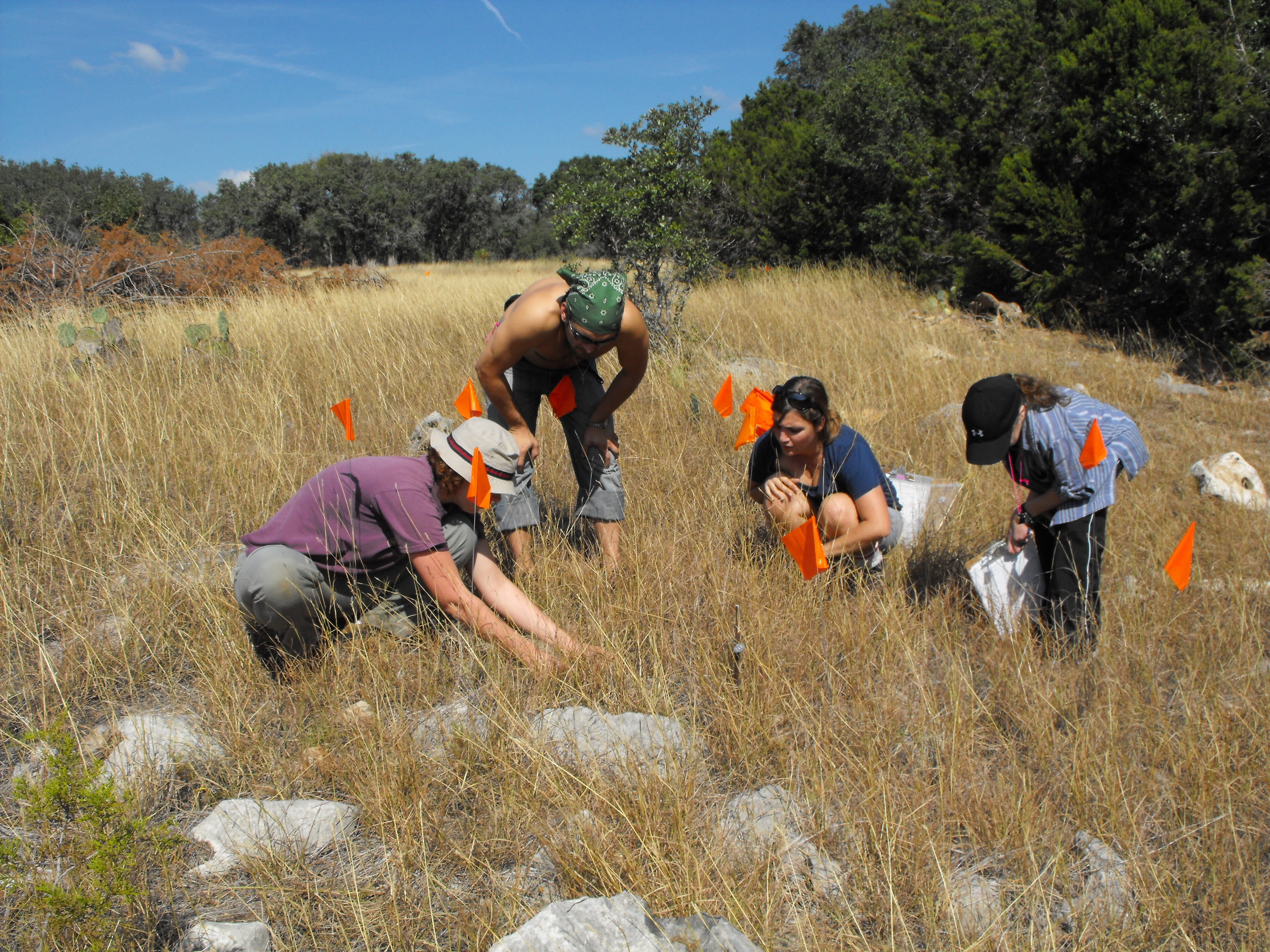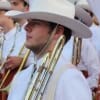This project is now in update mode. Check back regularly to see how things are progressing.
Field Biology's Bracken Cave Trip
While over 100,000 people (according to Bat Conservation International's website) are able to visit the Ann W. Richards South Congress Bridge every year, Bracken Cave is a unique opportunity for our students because it is not open to the public. The bridge boasts 1.5 million Mexican Freetail bats, it is eclipsed by Bracken Cave, home to around 20 million bats. Seeing them spiral up out of the cave is a lifetime experience, especially since the site is by invitation only. Around dusk, the bats emerge to feed on insects in the surrounding area and have been spotted as far away as the Texas coast. The flight lasts all night, and the bats can sometimes take up to 4 hours to completely empty the cave. Not only is this area an amazing location to observe the bats start their flight, it also has a rich history. During the Civil War, the Confederates mined the guano that accumulates in the cave for use making fertilizer and explosives. The original elevator is still on site along with some plaques explaining some of the history, but don't worry, it's fenced off so we don't have to worry about falling in!

The Field Biology course at UT, BIO 208L, has been collecting data for a long-term woody vegetation survey at the Bracken Cave and Cibolo Creek Preserves since 2016 on behalf of The Nature Conservancy (TNC) and Bat Conservation International (BCI). The preserve complex, totaling 3460 acres, protects a variety of important species, including the largest known colony of Mexican free-tailed bats and the endangered golden-cheeked warbler, as well as recharge for the Edwards Aquifer. The Nature Conservancy and Bat Conservation International manage the two properties jointly. Appropriate management requires information about the condition of the site. This monitoring project focuses on woody plants, because they are the most important component of golden-cheeked warbler habitat. The data will allow TNC/BCI land managers to answer management-related questions, including whether there is adequate oak regeneration, how many trees have died during recent droughts, and where invasive woody plants should be managed. The data is also combined with information from bird surveys to understand where the best bird habitat is. As we continue this monitoring long-term, TNC will be able to show how any management actions have influenced the vegetation and understand when additional management is needed. Because the preserve complex is so large, staff from The Nature Conservancy cannot monitor vegetation throughout the property without BIO 208L’s help. The monitoring efforts of UT’s BIO 208L students are crucial for TNC to make sure that they can truly understand how the preserve functions.

Most of our supplies, such as field equipment and vans, are covered by UT as this is a valuable educational experience for the students. However, the cost of field trip food for the weekend is not covered. We are asking for donations to cover the cost of the food. Many of our students work to support themselves, often primarily by working weekends. By attending the mandatory field trip, they lose income that they might have earned over that time period. Additionally, they often have to rent camping equipment. We want to minimize their expenses by paying for their food. Unfortunately, we do not have funds to cover that expense.
Your donations will be used exclusively to cover field trip food expenses. Please help our students and donate today!

$25
Acorn
One hungry student-ecologist would get fed for two days and at the end of the trip, hopefully feel as David Attenborough does, "It seems to me that the natural world is the greatest source of excitement; the greatest source of visual beauty; the greatest source of intellectual interest."
$50
Cedar
This level of support feeds two hungry students on our field trip, and help them understand that, "until we recognize the essential role of biology, our attempts to truly unify the universe will remain a train to nowhere." - Robert Lanza
$100
Live Oak
4 students could eat at Bracken Cave and become one of Sylvia Earle's "...heroes: anyone and everyone who does whatever they can to leave the natural world better than they found it."
$250
Mexican free-tailed bat
This would pay for half the food for the field trip, and help to inspire our students in keeping with one of UT's mottos, What Starts Here Changes the World; "Ideas emerge when part of the real or imagined world is studied for its own sake." - E. O. Wilson





